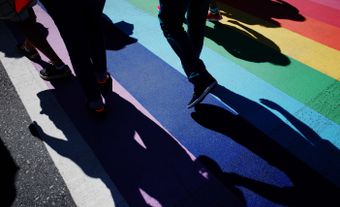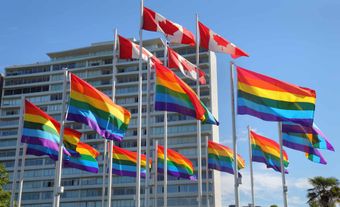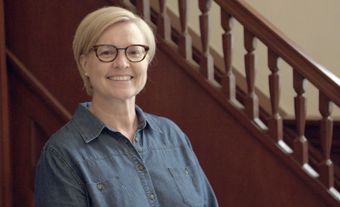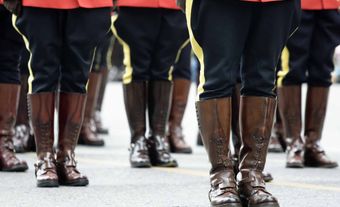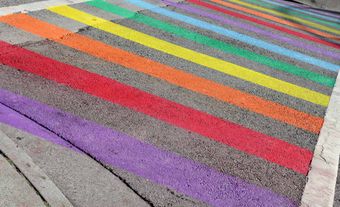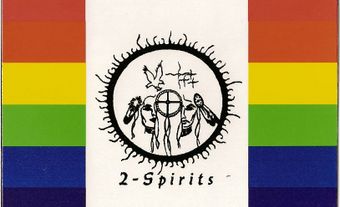Jamie Lee Hamilton, community activist, politician (born 20 September 1955 in Vancouver, BC; died 23 December 2019 in Vancouver, BC). Hamilton spent much of her career working as an advocate for sex workers, the transgender community, and missing and murdered Indigenous women and girls. She holds the distinction of being the first transgender person in Canada to run for political office. (See also Queer Culture.)

Early Life & Transition
Jamie Lee Hamilton’s mother Alice was a prominent member of the Indigenous community in Vancouver. She founded the Vancouver Aboriginal Friendship Centre in 1954. (See also Friendship Centres.) Alice was from the Rocky Boy Band of Montana. Hamilton’s father, Ralph, was of Irish ancestry from Washington State. Alice and Ralph championed social justice causes in Downtown Eastside Vancouver.
Hamilton knew from a young age that her gender identity did not match her biological sex. She experienced bullying in high school that caused her to drop out. At 16, she left home and began working in the sex trade. She worked the streets for three years as a teenager.
It is said that Hamilton was the first youth in Canada to be treated for a gender identity disorder. She began transitioning in 1969. Hamilton completed her transition with gender affirming surgery in 1983. (See also The Road to Inclusion: Transgender Health Care in Canada.)
Did You Know?
Jamie Lee Hamilton was a participant in Vancouver’s first Pride march and was elected Ms. Gay Vancouver in 1991. (See also Pride in Canada.)
Transgender and Sex Work Advocacy
In 1996, Jamie Lee Hamilton became the first known transgender person to run for political office in Canada. She ran for a position on Vancouver City Council, initially as part of the Coalition of Progressive Electors and later as an independent. She lost the 1996 election.
Hamilton opened a safe space for Vancouver’s sex workers in 1997 called Grandma’s House. The facility offered food and access to a nurse. In 2000, Vancouver police shut it down, claiming that Hamilton was operating a “common bawdy house.” The charges were eventually stayed.
In 2000, Hamilton and activists in Montreal and Toronto received a $30,000 grant from Health Canada to study HIV (see AIDS) among transgender and transexual sex workers. In 2006, she was an invited presenter at the Canadian parliamentary subcommittee on solicitation. Hamilton served as a director of the Vancouver Pride Society as well as the Greater Vancouver Native Cultural Society.
In 2016, Hamilton and sociology professor Becki Ross created Canada’s first sex workers memorial. It commemorates the sex workers who were pushed out of the West End of Vancouver during the 1980s. The pair also shared the 2019 Angus Reid Practitioners/Applied Sociology Award by the Canadian Sociological Association. This award recognized Hamilton’s contribution to recording the history of sex workers who were forcibly removed from Vancouver’s West End during the 1980s.
Did You Know?
Jamie Lee Hamilton was a strong advocate for Vancouver’s city parks. She ran as an independent for the Vancouver Park Board in 2008.
Missing and Murdered Indigenous Women
In the late 1990s, Jamie Lee Hamilton placed 67 pairs of high-heeled shoes on the front steps of Vancouver City Hall to protest missing and murdered Indigenous women who had disappeared from Vancouver’s Downtown Eastside. At the time, police efforts to determine what had happened to the women were considered lacking. Hamilton was one of the first who raised the prospect of a serial murderer targeting sex workers and Indigenous women in the Eastside.
In 2002, Robert Pickton was arrested when the DNA of over 30 people was discovered on his Port Coquitlam pig farm. Pickton had been targeting sex workers and Indigenous women he encountered in the Downtown Eastside. Hamilton continued to be an active advocate for a more thorough investigation into the case of missing and murdered Indigenous women and girls in Canada.

 Share on Facebook
Share on Facebook Share on X
Share on X Share by Email
Share by Email Share on Google Classroom
Share on Google Classroom
